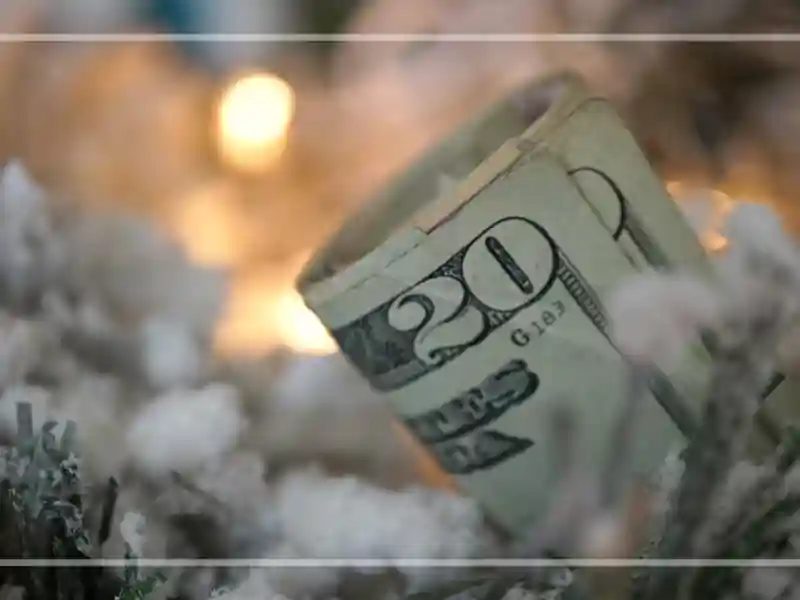
With winter edging onto the weather radar, you might be busy having your chimney cleaned and putting away your patio furniture for the season. But have you given any thought to winterizing your finances? The onset of low temps and fierce storms may snowball in unexpected ways that could challenge your life — and your bank account. Travel, holiday spending, monster energy bills and dead car batteries are only part of the story. Doing a little prep work can help keep you cozy and financially well-insulated for the winter months.
Home Prep for Winter’s Worst
Prepare for severe weather by having a week’s worth of nonperishable food on hand at all times, and maybe buy a small propane camp stove to use outside if the power goes out. Do you have a snow shovel and a bag of salt — and more importantly, solid homeowners insurance with liability coverage? Someone slipping on your driveway could cost you your hard-earned savings. Sealing windows, adding insulation or using smart thermostats can help lower costly energy bills.
Additionally, having your furnace inspected and changing the filter are easy ways to forestall an expensive emergency repair that will undoubtedly come at the worst possible time. How resilient is your local power grid? If it’s prone to outages during the season, think about buying a backup generator and learn how to use it safely. Even a small one could run a portable heater and dorm refrigerator in a crisis, helping reduce emergency expenses such as replacing spoiled perishables, securing temporary lodging or needing to eat out.
Snowy Day Fund
Make sure you have extra cash in your account to cover expected expenses — such as heating — and unexpected ones like snow removal from a freak storm or emergency home repairs from ice or wind damage. How much you should put aside depends in part on your living situation: If you’re renting, you won’t have to pay for water damage caused by an ice dam from backed up gutters (though replacing furniture might be on you unless it’s covered by renters insurance). Think about the things that could happen and save toward the most expensive possibilities.
Winter Wellness
Winter weather can bring more than just the cold or “a cold” — it can lead to unexpected and more costly medical expenses like flu treatments, frostbite care or even injuries from slips on ice. Consider setting aside extra funds for these types of events. Taking simple steps like getting a flu shot, bundling up in layers and washing your hands frequently can help you avoid getting sick. Having a little cushion in your budget for doctor visits or prescriptions can keep your wallet healthy even if you’re under the weather.
Avoid a Blizzard of Car Trouble
Take steps now to avoid a costly breakdown. Bring your car to an auto parts or repair shop and ask them to test the battery. If it’s weak, replace it before you’re stuck on the side of the road in need of a tow truck. Check the tires as well. If the tread is almost gone, they’re not going to grip well on wet or icy surfaces. If you live in an ice-prone area, check last year’s snow tires for dry rot or buy new ones.
Fill your fluids and make sure you have a low-temperature coolant — aka anti-freeze — in your radiator and not just water. Also make sure you have an emergency kit with jumper cables, first aid supplies, water, nonperishable food and a thermal blanket at the least.
Winterize Your Wallet
Go through your monthly budget line by line. Add to it for things you know will increase (energy), seasonal items such as holiday travel and gifts, and discretionary items (a box of cookies for the work crew and an ugly sweater for the holiday party). Paying down credit card balances, if possible, will both save you money on interest payments and give you some extra cushion to deal with any emergencies that may arise.
Stocking Stuffer
Do you tend to get a year-end bonus or cash gifts? Make a plan to put them to good use. Rather than spending, consider using them to add to your emergency fund, pay down debt or boost your retirement savings.
Winter can be harsh, not just on you, but also on your finances. But making a plan in advance can help buffer the worst and prevent damage from exposure, both physical and financial, while you wait for warmer days to return.
Source